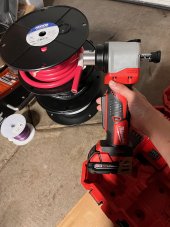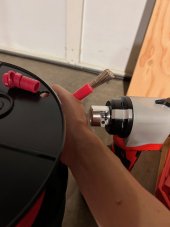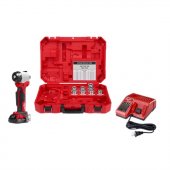Hedges
I See Electromagnetic Fields!
- Joined
- Mar 28, 2020
- Messages
- 20,577
I grew up using dikes to cut and strip:

Now I usually use something like this, my small to medium wire/cable cutter:

I score the insulation. Bend to stretch and break if I'm trying not to nick fine strand wire.
If stiff insulation like on 2/0 house wiring, or to remove insulation in the middle (like for a split bolt), then I split it lengthwise with a razor or X-acto knife.
Using that to cut larger cables I have to nip through, so I got this one:


IIT 8" Diagonal Cutting Plier Side Cutter Cuts Wires Cable Zip Ties Pliers 45510 for sale online | eBay
Find many great new & used options and get the best deals for IIT 8" Diagonal Cutting Plier Side Cutter Cuts Wires Cable Zip Ties Pliers 45510 at the best online prices at eBay! Free shipping for many products!
www.ebay.com
Now I usually use something like this, my small to medium wire/cable cutter:

Wiss Flip Joint 3-in-1 Cable Cutter 0890CSFW Fast Ship for sale online | eBay
Find many great new & used options and get the best deals for Wiss Flip Joint 3-in-1 Cable Cutter 0890CSFW Fast Ship at the best online prices at eBay! Free shipping for many products!
www.ebay.com
I score the insulation. Bend to stretch and break if I'm trying not to nick fine strand wire.
If stiff insulation like on 2/0 house wiring, or to remove insulation in the middle (like for a split bolt), then I split it lengthwise with a razor or X-acto knife.
Using that to cut larger cables I have to nip through, so I got this one:

High Quality | eBay
Due to its excellent ergonomic design, the handle is comfortable for easy gripping. Would you like to carry this compact-sized tool kit along with you?. Color: Black & Yellow. 11 x Pair of Dies. 4 x Seal Rings.
www.ebay.com





